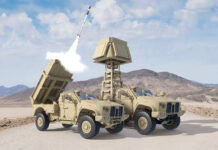Hezbollah is attempting in vain, at least sofar, to bring down the Government of Lebanon, at the behest of its allies, Syria and Iran. The assassination of Industry Minister, Pierre Gemayel, a Maronite Christian, on 21 November 2006, added boost to the story, the general assumption being that this act was prelude of an ongoing “coup” action plan. For months, Hezbollah and its compatriots have been seeking a more broadly based Lebanese government – a government of national unity in which Shi’ites would have more say. Failing that, they seek a general election for their objective. Hezbollah and Aoun’s Christian Free Patriotic Movement and their allies have already 56 out of the 128 seats in the Chamber of Deputies, that is, over 40%.
So a government of national unity representative of the Chamber would give the two groups over a third of the Ministers.
But things may change soon When Nasrallah asking his audience in a recent rally: “Are you willing to fight the wars of others inside Lebanon?“, accusing the Lebanese army and government of fighting the anti-terror war on behalf of the Americans, and the Lebanese army being “incapable in defending Lebanon” he might well cause General Aoun to break with him. Indeed, while the Lebanese army has not yet succeeded in routing the Syrian-backed Fatah-al Islam uprising in Nahr al Bared camp, its efforts have nevertheless managed to prevent the uprising spreading further south, challenging Fouad Siniora’s Government, which was the prime objective in Damascus. In fact, for the first time in decades, the Lebanese military have clearly demonstrated considerable fortitude in carrying out their task, even in the face of heavy casualties.
 Thus, if this trend by Hezbollah’s leader remains, it would seem logic that General Aoun’s popularity is likely to vanish if he continues to stand behind Nasrallah, giving his Christian followers second thoughts over their strange alliance with Nasrallah’s Shi’ites. In fact, Aoun’s popularity within the Maronite Christian population is still high. This community will no doubt become the main target in any future confrontations with either Sunni extremist factions, or Hezbollah Thus, General Michel Aoun could well opt again for a new volte face to take the helm, saving the community from yet another tragedy. Analysts claim that without a consensus candidate in sight for the presidential election which is to be carried out in parliament, the sole declared runner could be the controversial Michel Aoun, who was exiled in Paris after the war with Syrian troops but returned when they finally withdrew in 2005.
Thus, if this trend by Hezbollah’s leader remains, it would seem logic that General Aoun’s popularity is likely to vanish if he continues to stand behind Nasrallah, giving his Christian followers second thoughts over their strange alliance with Nasrallah’s Shi’ites. In fact, Aoun’s popularity within the Maronite Christian population is still high. This community will no doubt become the main target in any future confrontations with either Sunni extremist factions, or Hezbollah Thus, General Michel Aoun could well opt again for a new volte face to take the helm, saving the community from yet another tragedy. Analysts claim that without a consensus candidate in sight for the presidential election which is to be carried out in parliament, the sole declared runner could be the controversial Michel Aoun, who was exiled in Paris after the war with Syrian troops but returned when they finally withdrew in 2005.
An Iranian source told the London-based al-Sharq al-Awsat newspaper that during their meeting in Damascus earlier this month, President Mahmoud Ahmadinejad and Syrian President Bashar Assad agreed to boost military and political relations between the two countries. In return for Iran’s military assistance and its promise to back Syria on the Lebanon issue, Assad pledged not to enter into peace talks with Israel. According to the agreement, Ahmadinejad will exert his influence to prevent the Lebanese parliament from convening to elect a new president to replace Emile Lahoud, who will be stepping down in the coming weeks.
 Ahmadinejad also asked Tehran’s protégé Hassan Nasrallah to try and understand that his government was financially squeezed by its preparations for a future conflict and was therefore unable, at the moment, to remit the one million dollars promised to repair the war damage suffered by South Lebanon last year. This was apparently part of the Iranian leader’s discontent with Hezbollah failing him miserably, in disregarding Tehran’s specific instructions over the use of its medium-and long range missile arsenal – which was totally lost during the first days of the so-called “Tamuz” war last summer. According to reports, Nasrallah was visibly taken aback by his sofar loyal sponsor’s rigid stance. Nasrallah claimed that he too was weighed down by the heavy cost of his pledges to the inhabitants of southern Lebanon, from which he might lose support if their situation was not solved within foreseeable time but it seems that Ahmadinejad remained adamant.
Ahmadinejad also asked Tehran’s protégé Hassan Nasrallah to try and understand that his government was financially squeezed by its preparations for a future conflict and was therefore unable, at the moment, to remit the one million dollars promised to repair the war damage suffered by South Lebanon last year. This was apparently part of the Iranian leader’s discontent with Hezbollah failing him miserably, in disregarding Tehran’s specific instructions over the use of its medium-and long range missile arsenal – which was totally lost during the first days of the so-called “Tamuz” war last summer. According to reports, Nasrallah was visibly taken aback by his sofar loyal sponsor’s rigid stance. Nasrallah claimed that he too was weighed down by the heavy cost of his pledges to the inhabitants of southern Lebanon, from which he might lose support if their situation was not solved within foreseeable time but it seems that Ahmadinejad remained adamant.
President Mahmoud Ahmadinejad, who swept to power in 2005, promising to bring oil revenues to every family, is already facing increasing criticism over newly imposed fuel rationing and skyrocketing prices. Domestic discontent is an unwelcome challenge for a president who has his hands full fending off international criticism over Iran’s nuclear program and now also growing discontent over his reckless spending to outsiders, like Syria and Hezbollah, defying his instructions. First signs in Iran are evident already, as shortly after raising gasoline prices by 25 percent, the government began fuel rationing, sparking violence in Tehran as angry Iranians smashed shop windows and set fire to a dozen gas stations.
instructions. First signs in Iran are evident already, as shortly after raising gasoline prices by 25 percent, the government began fuel rationing, sparking violence in Tehran as angry Iranians smashed shop windows and set fire to a dozen gas stations.
While the reports from the Damascus summit received little headlines in the Arab world, the al-Sharq al-Awsat item, which was virtually hidden in backpages, quite surprisingly became top news in Israel. Tehran’s immediate denial of the “new arms deal with Damascus”, which was no more than a exaggerated version of an earlier Russian- Syrian rumor spread before the Lebanon war in June 2006, remained ignored. In the meantime, Israeli intelligence seems to have gotten behind the real topic for Ahmadinejad’s surprise visit to Damascus. Although sofar no official version has become available, sources close to intelligence assessments consider the Damascus talks and especially the follow-on meeting in Tehran, to be the real topic discussed between the military leaders. Several reasons seem to back this thesis:
- The current preparations for a new Middle East summit, sponsored by US President Bush is aimed not only to try and support a Israel-Palestinian peace initiative, but primarily to bolster the creating anti-Iranian (Shi’ite) axis, headed by Saudi Arabia, with other moderate Sunni nations. This new development, which seems to gain momentum these days, must be Ahmadinejad’s top priority issue.
- The fear over Bashar Assad trying to renew a peace initiative with Israel and withdraw from the Iranian “bear hug” is Ahmadinejad’s second worry. The looming threat over the new UN Tribunal over the assassination of Rafik Hariri must already cause young Bashar sleepless nights.
- Failure of Hassan Nasrallah’s postwar internal revolution to topple Siniora’s government and thus eliminate Iran’s strategic forward base in South Lebanon, is Tehran’s serious concern and lastly, the Gaza fiasco, of the brutal Hamas takeover, Tehran’s Palestinian protégé, has sofar misfired badly, with Hamas virtually “bottled-up” in Gaza- unable to support its millions of hapless people.
All this signaling not a very pleasant outlook for Ahmadinejad’s Shi’te Crescent ambitions in the still Sunni Moslem dominated region.
Returning to the situation in Lebanon – the White House has recently taken the unprecedented step declaring that Syria and Iran, acting through Hezbollah, are on the verge of staging a coup d’etat against the democratically elected government of Fouad Siniora and the assassination of Pierre Gemayel could have been the first shot in that coup.
A series of recent opinions published in the Lebanese daily Al-Mustaqbal, openly warned of a planned Syrian-Iranian coup in Lebanon. The question asked was: “Were the latest reports over the Damascus talks between Ahmadinejad, Assad and Nasrallah only a disguise for the real thing that the “rogue axis” leaders were planning in Lebanon?”
According to these articles, Hezbollah was planning to launch, in the near future, a new stage in the coup being sponsored secretly by Syria and Iran in Lebanon, during which it would use its weapons on the domestic Lebanese front. The threats by the Lebanese opposition to establish a second government in Lebanon were part of this planned coup, and the coup was to be carried out under the banner of establishing a second government. Unconfirmed reports, close to Israeli military sources, claimed that Hezbollah has moved its short-range Katyusha rockets into built-up areas in southern Lebanon, mostly in Shi’ite villages, or even in Beirut, which experts believe could be fired in an emergency against Siniora’s strongholds.
Further articles in the free Lebanese press mentioned that Hezbollah’s military preparations fell under several categories:
- a) Military activity both south and north of the Litani River, in defiance of U.N. Resolution 1701
- b) Transformation of the Beqa’ region into a military zone, so that it could be used as a war zone in Hezbollah’s next confrontation with Israel and as a frontline in the next war.
In this context, the articles mentioned several events: a recent military parade in the Beqa’ valley, in which hundreds of Hezbollah activists participated; days-long truck traffic from the northern villages in the Beqa’ towards a village where permanent military positions had been reinstated in several buildings; groups of young people who had gone to train in Iran; and earthworks in Balbeq for installing Hezbollah’s private telephone communications network.
One of the articles in Al-Mustaqbal asked whether Iran’s involvement in the Lebanon coup was evidence of a change in Iranian policy, which had previously been that everything possible must be done to prevent Sunni-Shi’ite civil war in Lebanon. It read: “The dossier of Iranian-Syrian relations, and Iran’s relations with influential Arab countries, has passed entirely into the hands of Iranian Foreign Minister Manuchehr Mottaki, and Iranian National Security Council Secretary Ali Larijani no longer has anything to do with this issue…”
Shiite Persian Iran is not content with being just an inconsequential pariah. Ahmadinejad’s Iran has grand ambitions. Tehran wants to be the predominant state in the Middle East, replacing the US as the region’s power broker and lording over its Sunni Arab neighbors. With the fall of its most fearsome competitors for regional pre-eminence – Iraq’s Saddam Hussein and Afghanistan’s Taliban – Iran is blatantly purporting itself on the international stage.
While Hezbollah is threatening to topple Lebanon’s democratically elected government unless it is given additional cabinet seats – potentially rendering it veto power over Beirut’s decisions, Iran would love to add Lebanon to Syria as a client state in its effort to form an arc of Iranian influence across the region.
One look at a map suffices, to see that the current movements by Iran make lots of sense. Control Syria and Lebanon in the north and gain control of Gaza in the south a classic strategic pincer move. Once they establish control of Iraq they have a choice: Take on Israel, or consolidate the Caliphate first by taking Jordan and then moving southward. If given a free game playground, Mahmoud Ahmadinejad views this as his messianic long term plan. He is not doing this just to cause a present distraction, by spreading rumors and disinformation over his nuclear ambitions, this is his so-called “Caliphate War” and the struggle is already on. It remains to be seen if it will be a Sunni or Shia Caliphate.
















